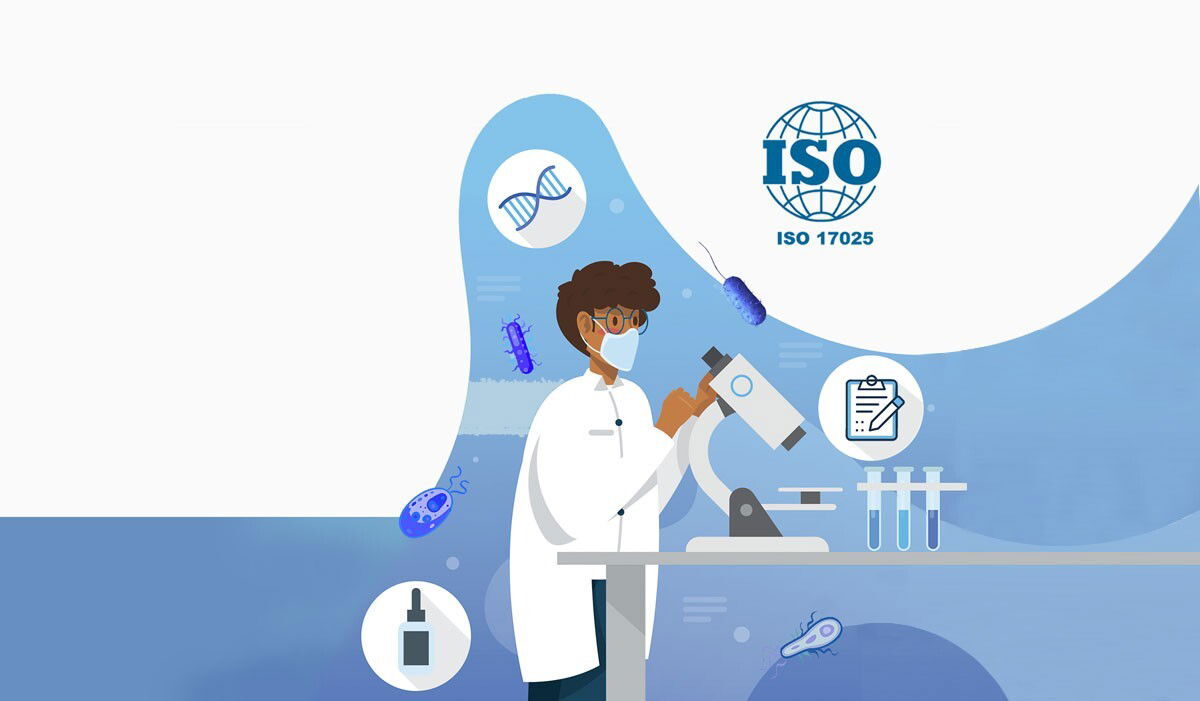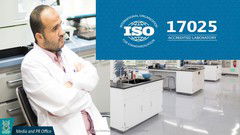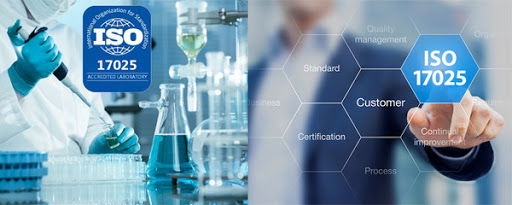What is ISO 17025? | ISO 17025 Implementation Explained
ISO 17025 is an international standard that specifies the general requirements for the competence, impartiality, and consistent operation of laboratories. It applies to all organizations performing laboratory activities, regardless of the number of personnel. The standard is crucial for ensuring the quality and reliability of testing and calibration results, which are fundamental in various sectors such as manufacturing, healthcare, research, and environmental monitoring.
Overview of ISO 17025
ISO 17025 was first issued by the International Organization for Standardization (ISO) in 1999, with subsequent revisions to stay aligned with technological advancements and industry needs. The latest version, ISO/IEC 17025:2017, introduced several significant changes, including a stronger focus on risk-based thinking and the integration of information technology.
The standard is structured around two key sections: Management Requirements and Technical Requirements.
- Management Requirements focus on the overall operation and effectiveness of the laboratory’s quality management system. These include requirements related to the organization’s structure, the management of documents and records, and the processes for addressing customer complaints and non-conforming work.
- Technical Requirements deal with the competence of laboratory personnel, the suitability of testing and calibration methods, the traceability of measurements to national or international standards, and the proper handling and transportation of test items. It also covers the conditions under which testing or calibration is conducted, such as environmental conditions, equipment, and measurement uncertainty.
Click Here to Become Certified in ISO/IEC 17025 – Laboratory Management Systems Certification
Importance of ISO 17025 Certification
ISO 17025 certification is often required for laboratories that seek to demonstrate their competence and reliability in producing accurate and reproducible results. Accreditation to ISO 17025 provides a formal recognition of a laboratory’s competence, which can enhance customer confidence and open up new business opportunities.
The certification is particularly important in industries where precise measurements are critical, such as pharmaceuticals, food safety, environmental testing, and industrial manufacturing. For example, in the pharmaceutical industry, laboratories must ensure that their testing methods and results comply with regulatory standards to guarantee the safety and efficacy of drugs.
Key Elements of ISO 17025
The standard includes several critical elements that laboratories must implement to achieve and maintain ISO 17025 accreditation:
- Impartiality and Confidentiality: Laboratories must operate impartially, ensuring that their personnel are free from any undue influence that could affect the outcome of their work. Confidentiality must also be maintained to protect the sensitive information of clients.
- Personnel Competence: The competence of laboratory personnel is essential for producing valid results. ISO 17025 requires laboratories to document the qualifications, training, experience, and responsibilities of all personnel involved in testing and calibration activities.
- Testing and Calibration Methods: Laboratories must use appropriate methods and procedures for all tests and calibrations. These methods must be validated to ensure they are fit for purpose, and any deviations from standard methods must be justified and documented.
- Equipment and Measurement Traceability: All equipment used for testing and calibration must be properly maintained, calibrated, and checked to ensure accuracy. Measurement traceability to national or international standards is a critical aspect of ISO 17025.
- Handling of Test and Calibration Items: Laboratories must establish procedures for the handling, transportation, storage, and disposal of test and calibration items. This ensures the integrity of the items and prevents contamination or damage that could affect results.
- Quality Assurance of Results: Laboratories must implement quality assurance procedures to monitor the validity of test and calibration results. This may include participation in proficiency testing programs and regular review of data and reports.
- Reporting of Results: The standard specifies requirements for the format and content of test and calibration reports. These reports must be clear, accurate, and include all necessary information to allow clients to interpret the results correctly.
- Risk Management: ISO 17025 emphasizes the importance of risk management in laboratory activities. Laboratories must identify and address risks that could affect the quality of their results and implement actions to mitigate these risks.
Click Here to Become Certified in ISO/IEC 17025 – Laboratory Management Systems Certification
The Process of ISO 17025 Accreditation
Achieving ISO 17025 accreditation involves several steps:
- Gap Analysis: The laboratory conducts a gap analysis to compare its current practices with the requirements of ISO 17025. This helps identify areas that need improvement.
- Implementation: The laboratory implements the necessary changes to align its practices with ISO 17025 requirements. This may involve updating procedures, training personnel, and improving record-keeping.
- Internal Audit: Before applying for accreditation, the laboratory conducts an internal audit to ensure that all ISO 17025 requirements are being met.
- Application for Accreditation: The laboratory submits an application to an accreditation body. The accreditation body reviews the application and schedules an on-site assessment.
- On-Site Assessment: The accreditation body conducts an on-site assessment to evaluate the laboratory’s compliance with ISO 17025. This includes reviewing documents, observing laboratory activities, and interviewing personnel.
- Corrective Actions: If any non-conformities are identified during the assessment, the laboratory must take corrective actions to address them.
- Accreditation Decision: The accreditation body reviews the assessment findings and makes a decision regarding the laboratory’s accreditation.
- Continual Improvement: After achieving accreditation, the laboratory must continue to monitor and improve its processes to maintain compliance with ISO 17025.
Benefits of ISO 17025 Accreditation
Accreditation to ISO 17025 offers several benefits:
- Increased Credibility: Accredited laboratories are recognized for their competence, which can enhance their reputation and credibility in the industry.
- Customer Confidence: Clients have greater confidence in the accuracy and reliability of results from an ISO 17025-accredited laboratory.
- Regulatory Compliance: Many regulatory bodies require laboratories to be ISO 17025 accredited as a condition of doing business.
- Improved Efficiency: The standard’s emphasis on systematic processes and continual improvement can lead to increased efficiency and reduced errors in laboratory operations.
- Global Recognition: ISO 17025 is recognized internationally, which can facilitate global trade and collaboration.
Click Here to Become Certified in ISO/IEC 17025 – Laboratory Management Systems Certification
Challenges in Implementing ISO 17025
While the benefits of ISO 17025 accreditation are significant, laboratories may face challenges in implementing the standard:
- Resource Intensive: Achieving and maintaining accreditation can be resource-intensive, requiring investment in training, equipment, and process improvements.
- Documentation and Record-Keeping: The standard requires extensive documentation and record-keeping, which can be time-consuming and may require dedicated personnel.
- Continuous Monitoring: Laboratories must continually monitor their processes and address any non-conformities promptly to maintain accreditation.
- Adaptation to Changes: Laboratories must be prepared to adapt to changes in the standard and update their practices accordingly.
Conclusion
ISO 17025 is a critical standard for laboratories that perform testing and calibration activities. By adhering to its requirements, laboratories can demonstrate their competence, ensure the reliability of their results, and gain a competitive advantage in the marketplace. While the journey to accreditation can be challenging, the benefits in terms of credibility, customer confidence, and global recognition make it a worthwhile investment for any laboratory committed to excellence.
Industry Courses to start today!
1. MANUFACTURING, QUALITY, PRODUCT DEVELOPMENT, OPERATIONS & SUPPLY CHAIN MANAGEMENT
- Digital Manufacturing and Industrial Design Technology
- Health, Safety & Environmental Management (HSE)
- Manufacturing Operational Excellence
- Operational Risk Management
- Food Security Management
- Quality Management
- Lean Six Sigma Green Belt
- Lean Six Sigma Black Belt
- Good Manufacturing Practices (GMP)
- ISO/IEC 17025 – Laboratory Management Systems Certification
- Essentials of Engineering Project Management
- Construction Project Management
- Essentials of Contract Management
- Environmental Impact Assessment (EIA)
- Laboratory Management Systems (LMS) Essentials
- Certified Manager of Quality & Process Excellence
- Essentials of Facility Management
- Agile Project Management
- Engineering Codes, Standards and Specifications
- Industrial Process Safety
- Fundamentals of Risk Management
- Industry 4.0: Digital Transformation in Manufacturing
- Manufacturing Operations Management Certification Course
- Total Quality Management (TQM) Certification Course
- Supply Chain Management (SCM) MasterClass
- Certified Lean Management Professional™ (CLMP™)
- Six Sigma for Business and Manufacturing Process Improvement
- Product Management Certification Course
- Statistical Process Control (SPC) and Data Analysis Course
- Quality Assurance for Business and Operational Excellence
- Lean Six Sigma Yellow Belt Certification Course
- Essentials of Facility Management
- Agile Project Management
- Engineering Codes, Standards and Specifications
2. ISO MANAGEMENT SYSTEMS IMPLEMENTATION & INTERNAL AUDITOR COURSES
- Integrated Management Systems (IMS) Implementation Course
- FSSC 22000 Implementation & Internal Auditor Course
- ISO 22000 Implementation & Internal Auditor Course
- ISO 22000 (HACCP, PRPs, oPRPs and CCPs) for Food Safety
- Certified Internal Auditor (CIA) Training Course
- ISO 9001 (QMS) Implementation & Internal Auditor Course
- ISO 14001 (EMS) Implementation & Internal Auditor Course
- ISO 45001 (OH&SMS) Implementation & Internal Auditor Course
- Food Fraud Mitigation & Defense Certification Course
3. ISO LEAD AUDITOR COURSES
- ISO 50001 Energy Management Systems (EnMS) Lead Auditor Course
- ISO 22000 Food Safety Management Systems (FSMS) Lead Auditor Course
- ISO 14001 Environmental Management Systems (EMS) Lead Auditor Certification Course
- ISO 45001 Occupational Health & Safety Management Systems (OH&MS) Lead Auditor Certification Course
- ISO 9001 Quality Management Systems (QMS) Lead Auditor Course
- FSSC 22000 Lead Auditor Certification Course


